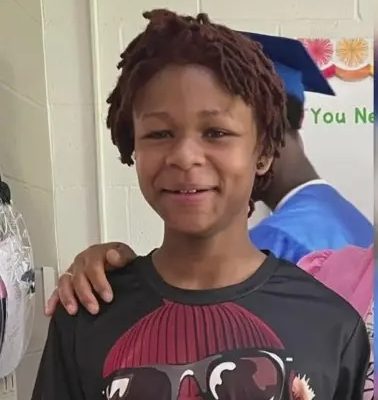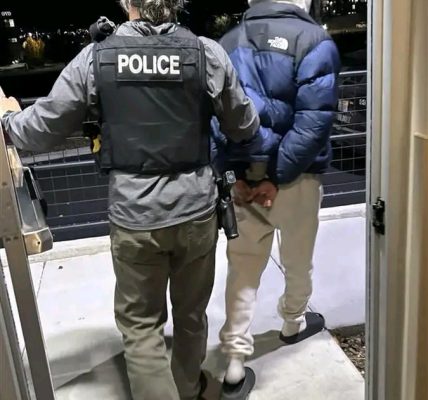EL PASO, Texas — Nearly five years after the deadly mass shooting that shocked the nation and devastated the border community of El Paso, a federal judge is now considering whether to unseal a significant number of court documents in the case against Patrick Crusius, the gunman who carried out the attack. The decision could mark a turning point in a case that has remained largely shielded from public view since the 2019 tragedy.
Background: A Nation Reeling from Hate
On August 3, 2019, Patrick Crusius entered a Walmart store in El Paso armed with a semi-automatic rifle and opened fire on shoppers, killing 23 people and injuring dozens more. Many of the victims were Latino, and authorities quickly identified the attack as a hate crime. In a chilling manifesto allegedly posted online before the massacre, Crusius espoused white supremacist views and cited anti-immigrant sentiments as a driving force behind his actions.
The massacre, one of the deadliest in modern U.S. history, reignited national debates around domestic terrorism, gun control, and the spread of extremist ideologies online. It also left the El Paso community scarred but determined to seek justice and healing.
Federal Case Proceedings Largely Sealed
In the wake of the shooting, both federal and state authorities brought charges against Crusius. While he pleaded guilty to 90 federal charges, including hate crimes and firearms offenses, in February 2023 as part of a plea deal to avoid the federal death penalty, significant portions of the federal case have remained under seal. The public has had limited access to pre-trial motions, evidentiary filings, and other key documents that could shed light on how prosecutors built their case and how law enforcement agencies responded in the immediate aftermath.
Advocates for transparency—including media organizations, civil rights groups, and some victims’ families—have pushed for greater access, arguing that the sealed documents could reveal crucial information about the motivations behind the attack, potential warning signs that were missed, and broader systemic failures.
Judge’s Deliberation: Balancing Transparency and Security
Now, U.S. District Judge David C. Guaderrama is considering whether to grant motions to unseal dozens of filings. During a recent court hearing, arguments were presented both for and against the unsealing.
Attorneys representing media organizations contended that the public has a right to understand how the case was prosecuted, particularly given its broader societal implications. “This was not just a crime against individuals—it was a hate-driven attack on an entire community and an act of domestic terrorism,” one attorney said. “The public deserves to know how the justice system handled such a pivotal case.”
Prosecutors, however, have expressed concerns that unsealing some documents could expose sensitive information, including investigative techniques, confidential witness statements, or evidence that could affect ongoing or future proceedings—particularly as state prosecutors in Texas have yet to pursue the death penalty case against Crusius at the state level.
The judge has yet to issue a ruling, but he acknowledged the importance of both transparency and caution, noting that any decision must carefully balance the public’s right to know with the imperative to protect ongoing legal processes and personal privacy.
Victims’ Families and the Community Weigh In
For many victims’ families and survivors, the potential release of sealed records is a complex issue. Some are eager for full transparency, hoping the documents will offer clarity and closure, while others worry that reliving the details of the attack could reopen emotional wounds.
“El Paso has waited for years to learn what really happened in those hours and days after the shooting,” said Maria Rodriguez, whose father was killed in the attack. “We deserve the truth. We deserve to know if something could have been done to prevent this.”
Community leaders have also spoken out, emphasizing that the massacre was not just a local tragedy but a national wake-up call. “This case goes beyond El Paso,” said Fernando Garcia, director of the Border Network for Human Rights. “It speaks to the rise of white supremacist violence and how our institutions respond to it. Full disclosure can help us prepare, respond, and prevent future atrocities.”
Broader Implications: A National Case Study in Hate Crime Prosecution
If the documents are unsealed, they could serve as a rare and detailed case study into the prosecution of hate crimes and domestic terrorism in the U.S. Legal experts say it could provide insight into how federal hate crime laws are enforced and the challenges prosecutors face in bringing such complex cases to court.
Additionally, the information may reveal any lapses in early detection or intervention that might have prevented the attack—information that could inform future strategies for combating domestic extremism.
The decision could also influence other high-profile cases involving sealed records, setting a precedent for how the judiciary balances transparency with security and privacy in an era of growing public demand for accountability.
Looking Ahead
As El Paso continues to rebuild and remember, the federal court’s pending decision carries weight far beyond the courtroom. It is not just a legal ruling—it is a moment that could redefine the public’s understanding of justice, accountability, and the legacy of one of the darkest days in recent American history.
Judge Guaderrama is expected to rule on the unsealing request in the coming weeks. Until then, the community, the victims’ families, and the nation await a decision that could illuminate the hidden chapters of a tragedy that has already left an indelible mark.
Would you like this turned into a press release, blog post, or formatted for news publication?





